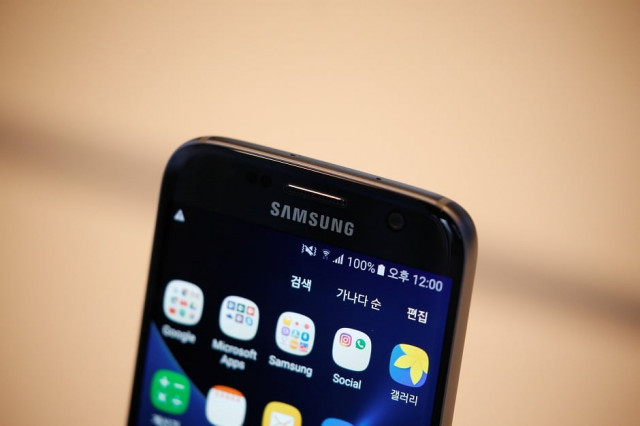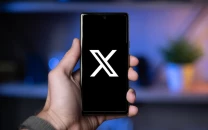Samsung crisis violates the PR rulebook
Samsung will scrap the entire Note 7 line in an embarrassing setback for a brand image that took years to build

Samsung will scrap the entire Note 7 line in an embarrassing setback for a brand image that took years to build. PHOTO: REUTERS
As a result, the South Korean company has its work cut out as it embarks on a vast and costly exercise to win back trust and prove that it is still a byword for quality at a time when its rivals are going full tilt in the smartphone wars.
"The basis of crisis management is to make sure that when you give a solution, it's the right solution and it is going to enable you to move forward," Andy Holdsworth, a crisis management specialist at the British PR firm Bell Pottinger, told AFP.
YouTube video shows Note 7 'flamer' in Burger King
That has not been the case with Samsung. Perhaps reluctant to lose too much ground to rivals such as Apple and Google, who were busy launching their own new models, the company rushed out replacements for its Galaxy Note 7 'phablet' series when some in the first global batch spontaneously caught fire.
The incendiary problem persisted, however, and now Samsung has been forced to scrap the entire line in an embarrassing setback for a brand image that took years to build up. Some airplanes had banned passengers from boarding with the phones. Social media is rife with anger and ridicule. One video, of a Burger King employee in South Korea gingerly handling a smoking Note 7 with oven gloves, has gone viral.
Holdsworth said Samsung's response throughout had been "disjointed".
"I would question the investigation and I would question why Samsung said last night the product is safe if this morning (Tuesday) they then decide to recall all units and stop production. There seems to be a slight miscommunication somewhere.
"You kind of lose faith in it because your remedy (suffered) the same problem and this problem is quite a dangerous one."
The family-run corporations, or "chaebol", which dominate the South Korean economy are used to running their businesses their own way.
As companies like Samsung and LG have become global brands, their corporate governance and PR cultures have improved as they have adapted to the rigours of international markets, but analysts say the old family-run structure, with its rigid top-down decision-making, leaves them vulnerable to a crisis.
Samsung Note 7: Third 'safe' replacement catches fire
In Samsung's case a generational leadership transfer, with family patriarch and group chairman Lee Kun-Hee bedridden since suffering a heart attack in 2014, may have contributed to the company's failure to deal efficiently with the Note 7 crisis.
"In chaebol like Samsung, the all-powerful chairman makes key decisions and these are swiftly translated into actions by his underlings," said Chung Sun-sup, head of corporate analysis group Chaebul.com.
"But if such a patriarchal leader is somehow absent, such a decision-making structure may fall into limbo. The current crisis at Samsung is related with this corporate structure. If Lee was in charge, he might have sorted it out, bringing in every available expert from both inside and outside the company. But Samsung just tried to tinker with the problem and failed," Chung said.
It could be worse. There has been no loss of life, unlike other PR disasters such as the 2010 explosion at BP's Deepwater Horizon oil rig which now features in a Hollywood movie.
And other companies have also struggled with the challenge of extracting more power and faster charge times from the lithium-ion technology used in smartphones today.
Boeing suffered electrical fires from the lithium-ion batteries aboard its new 787 jet, and Dell with self-combusting laptops, noted ManMohan Sodhi, a professor of operations management and supply chain at Cass Business School in London.
Samsung China to recall all 190,984 Galaxy Note 7 phones sold in mainland China
But Samsung erred in striving to "fix the problem too quickly", he said. Now, with the total shutdown of Note 7 production, "it sends a bad signal to the market that there is panic in the boardroom".
There may be no quick fix to undo the past few weeks, during which it appeared that Samsung's official response appeared to lag that of national regulators, airlines and mobile phone carriers.
But Samsung should at least shed any inhibitions it may feel about being more forthright with its customers, said Yves Robert-Paul, who heads crisis communications for French advertising group Havas.
Since Samsung started recalling the phablets last month, he said, it has offered only "a pragmatic response, devoid of all emotion".
"They've run it like an industrial disaster but they forgot to think about their customers."



















COMMENTS
Comments are moderated and generally will be posted if they are on-topic and not abusive.
For more information, please see our Comments FAQ